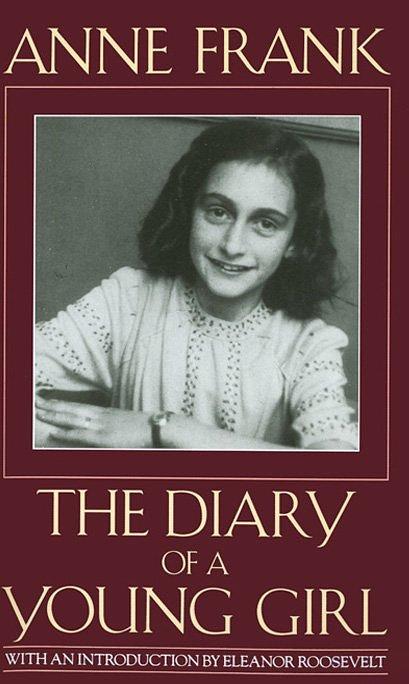
We have talked recently about the school's "values of the month" of positive attitude and personal goals. The quote above came from the poem I showed you in Homeroom a few weeks ago (see link above).
In reading Anne Frank: The Diary of a Young Girl, we saw Anne exhibit these qualities, values, and "ideals", as she says. These virtues were what kept her alive and happy, though she was living in wretched conditions. Right at the end of her diary, after over 2 years living in oppression and fearing for her life, she writes:
“It’s really a wonder that I haven’t dropped all my ideals, because they seem so absurd and impossible to carry out. Yet I keep them, because in spite of everything I still believe that people are really good at heart. I simply can’t build up my hopes on a foundation consisting of confusion, misery, and death. I see the world gradually being turned into a wilderness, I hear the ever approaching thunder, which will destroy us too, I can feel the sufferings of millions and yet, if I look up into the heavens, I think that it will come right, that this cruelty too will end, and that peace and tranquility will return again” (p. 263-264).
In Defiance (check out the "bookmarks" in this link), we saw that same survival of hope and human spirit. Think about the scene when Tuvia gets angry that one of the community members gave birth to a newborn baby, and Lilka reminds him that he can't lose his humanity. Or, the scene when they are fleeing from the Germans and come to a lagoon. They are about to give up, but then Asael reminds them, "Nothing is impossible. What we have done is impossible!"
And what about The Boy in Striped Pyjamas? How do we see human spirit in this movie? The survival of hope and goodness? Does this movie also show us that, like Anne says, "in spite of everything, people are really good at heart"?
This post is for you to open a discussion about "the human spirit" and its survival in even the worst of times. Think about the movies we saw, Anne's diary, and the bravery and courage of the Jewish people living through the Holocaust. Think about other times in the past when hatred has made people's lives oppressive, and about your own life today... and if YOU have the same human spirit that these people had.




